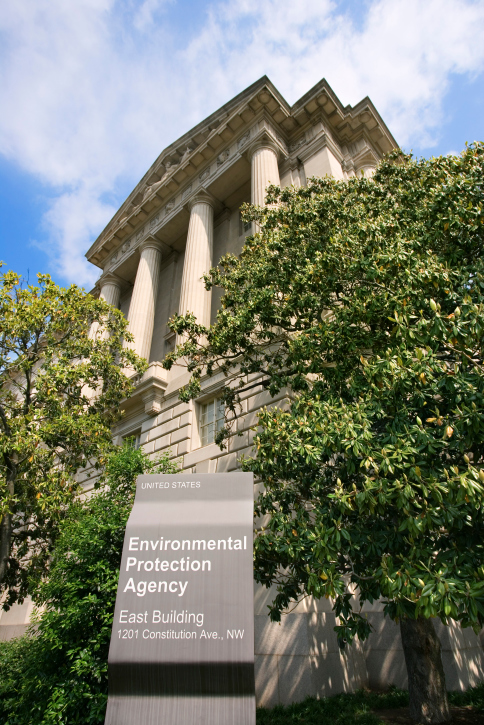Saying the Environmental Protection Agency (EPA) had shown “apathy and carelessness” in carrying out Freedom of Information Act (FOIA) requests from conservative organizations, a federal judge excoriated the agency for its handling of an open-records request from the Landmark Legal Foundation (LLF).
In his 25-page opinion, issued on March 2, Judge Royce C. Lamberth of the U.S. District Court for the District of Columbia blasted EPA for first saying it had conducted a thorough search for the requested documents and then retracting its claim years later in a footnote to another document.
“[T]he recurrent instances of disregard that EPA employees display for FOIA obligations should not be tolerated by the agency at large,” Lamberth said in his ruling. “This court would implore the Executive Branch to take greater responsibility in ensuring that all EPA FOIA requests—regardless of the political affiliation of the requester—are treated with equal respect and conscientiousness.”
EPA Offenders Named
Lamberth accused EPA of foot-dragging on the FOIA requests until after the 2012 presidential election. Lamberth specifically named Eric W. Wachter, director of EPA’s Office of the Executive Secretariat, among others, as playing a key role in mishandling the FOIA requests. Wachter told the court years ago a thorough search for the documents in question had been carried out. The Justice Department later retracted this assertion.
LLF’s FOIA request was made in an attempt to obtain information on contacts EPA had with outside environmental groups when the agency was drafting regulations. A February 2014 Environment & Climate News article reported the Energy & Environment Legal Institute had obtained emails showing the Starbucks located in the J.W. Marriott Hotel near EPA’s Washington, DC headquarters served as a an “off campus” meeting place where EPA officials and environmental activists regularly met to plot strategy. By not meeting at EPA headquarters, the activists avoided signing in at the agency. Absent the FOIA request, their meetings would have remained secret.
Diminishes ‘Trust in the Agency’
“Either EPA sought to evade Landmark’s lawful FOIA request so the agency could destroy responsive documents, or EPA demonstrated apathy and carelessness toward Landmark’s request,” Royce said. “Either scenario reflects poorly on EPA and surely serves to diminish the public’s trust in the agency.”
Lamberth did not impose criminal sanctions on the agency, noting LLF was unable to prove intentional bad faith behind EPA’s actions.
Chris Horner, an attorney and senior fellow at the Competitive Enterprise Institute, says EPA must change its culture if it is to restore its credibility.
“FOIA operates on an honor system, though what we have learned and what this case affirms is this is no longer acceptable,” Horner said. “The same employees whose honor makes the scheme work have not only slow-walked FOIA requests but engaged in other behavior proving that this is no accident, like moving correspondence with ideological allies over to private e-mail accounts, which are not searched, and text messaging, which is not preserved.”
Bonner R. Cohen, Ph.D. ([email protected]) is a senior fellow at the National Center for Public Policy Research.
INTERNET INFO
Judge Royce C. Lamberth, Legal Opinion in Landmark Legal Foundation v. EPA, March 2, 2005: https://heartland.org/policy-documents/legal-opinion-landmark-legal-foundation-vs-epa
Bonner Cohen, E-mails Reveal EPA Collaboration with Activist Groups,” Environment & Climate News, February 11, 2014: http://news.heartland.org/newspaper-article/2014/02/11/emails-reveal-epa-collaboration-activist-groups





